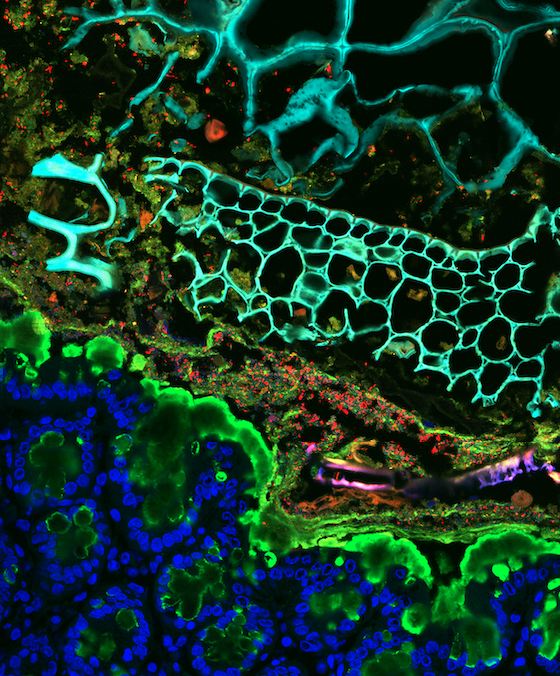
Assistant Professor Dr. Carolina Tropini (Department of Microbiology and Immunology, School of Biomedical Engineering) is excited to share the Tropini lab’s vision for the future of microbiome research.
In the recent manuscript for mSystems - “How the physical environment shapes the microbiota” – the Tropini lab’s research highlights the importance of measuring physical parameters for the prediction of microbial dynamics and microbiota therapies.
Living systems, from micro- to macro-scales, are strongly impacted by physical factors such as temperature, pH, and the concentration of compounds in their surrounding environment. In the macro-world, it is obvious that small changes in these parameters can have profound, and even devastating, impacts on an ecosystem. For example, in the case of global warming, a change in climate, and specifically a few degrees in temperature, has taken one million species of animals to the brink of extinction. Scale things down 6 orders of magnitude, our gut microbiota also experiences similar changes in temperature due to disease.
In a field dominated by focus on biochemical interactions, Tropini hopes this research will shed light on the importance of physical factors.
Improving human health in the micro-scale world
“As a naïve biophysicist entering microbiology during my Ph.D., I realized that living systems at all scales, from plants and animals to down microbes, are impacted by the physical environment,” shares Tropini. “For example, we normally think of a fever as a short, transient illness, but it affects the trillions of microorganisms in our gut over tens of their generations, similar generational timescales as global warming impacts mammals.”
In the macro-scale world, global warming affects climate and weather. So how does a fever impact the gut motility and host responses in the micro-scale? Could a fever lead to the loss of microbial species in our gut?
Since our gut microbiota also functions as a personalized pharmacy – anything our microbes excrete has the potential to make it through our blood system and impact all organs – the Tropini lab addresses these questions by investigating how physical factors due to natural physiology, disease and industrialization affect the gut microbiota and host health.
As a cross-disciplinary lab that incorporates techniques from microbiology, bioengineering and biophysics, a main goal for the lab is translating the knowledge gained from this research to improve human health.
“We are just getting started,” says Tropini. “The sky is the limit.”

